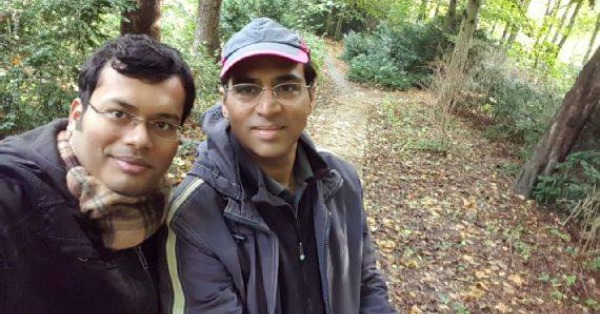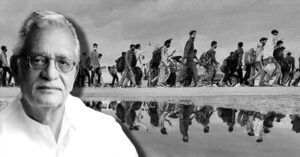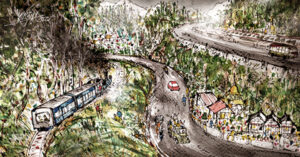Five-time World Champion Viswanathan Anand has been a legendary figure in Indian sport since he became India’s first Grandmaster. Exemplifying what it means to be a sportsperson and a gentleman, he remains the focal point for Indian chess even today. On the eve of his 52nd birthday, Daakbangla.com speaks to Grandmaster Surya Grandmaster Shekhar Ganguly, who has himself made India, Bengal and Kolkata proud about his experience of being Anand’s second for three consecutive World Championships.
It is Viswanathan Anand’s birthday on December 11. One of the most proud associations for Kolkatans is that you were on his team of seconds for three consecutive World Championships – in 2008, 20010 and 2012. How did it feel to be chosen?
Elated and frankly, unbelieving. In 2007, a year before the World Championship, I received the first email from him. The World Championship was not mentioned – it was simply an exchange between two chess players. During the course of these emails, I was overwhelmed by the volume of analysis he had. Anyway, I was about to play in the World Cup in Siberia and I grabbed the opportunity to ask if I could work with him. He asked me to go over to Chennai immediately, where I spent a month training with him.
A few months after this, when he was preparing for the World Championship match with Vladimir Kramnik, he got in touch to ask me to join his team. Of course I was elated. But also, I was caught completely by surprise. By any practical evaluation, I was not ‘second’ material. I do not say this out of any false humility or modesty. This is the truth.
At that point, as a chess player, I only had sharp survival skills and some tactics I relied on. I had no knowledge at all. Absolutely none. And there is no shame in saying this. I had had no formal training, I had not been schooled in the Soviet model of studying chess. I was playing only one kind of opening in every system. I knew only what I played and nothing beyond that. Hence, Anand contacting me was very surprising. If I were playing in any tournament and I wanted someone to help me, I would choose someone with experience in different kinds of play and not someone who plays only one kind of line.
I said yes, without asking a single further question. I still remember our exact conversation. Will you be interested in helping me for the Kramnik match, he asked. I said yes. Are you available for this and this period? I said yes. Will you be there throughout the match? I said yes. (Laughs).
What was it like to work with Anand?
An eye-opener. Before I started working with him, I used to think that I was a hard worker. But after working with him, I realised that that was a delusion. We would start our day at around 10:30/ 11 in the morning and finish not before 1am. Every single day this would go on, with a rest day maybe once a week, maybe once in 10 days.
While we all know Anand as a very intelligent person with a great sense of humour etc. etc., what people do not know, cannot imagine and cannot fathom are his levels of discipline and dedication. In fact, though natural gifts, his talent and his speed can still be matched. But, it is very difficult to match his discipline, dedication and work ethic. They are at a completely different level.
My association as his second went on till the Boris Gelfand match in 2012. I was part of his preparations for the match with Magnus Carlsen as well in 2014 but I was not involved during the match itself in Chennai. This was actually very good for me. Because, following the match from Kolkata and seeing him lose was extremely painful. I cannot even imagine how difficult it would have been for me to be physically there.
You have often said that he’s not only India’s greatest chess player, but India’s greatest sportsperson. Why do you say this?
Without a doubt, without a second thought, I say this today as well and for several reasons. First, chess is an individual sport, with players from 180 countries. That’s the number of chess-playing nations, taking the Olympiads as an index. Second, when Anand started playing, he had no benchmark whatsoever in India. We only had one or two International Masters – he was India’s first Grandmaster. He was first of and in basically everything. Not just that. He rose out of nowhere and completely dominated that world at a time when the Soviets were ruling. They had a well-established chess factory system of sorts – churning out world-level players one after another. Forget India – there was no one in Asia to give them a serious fight. And here was this man, breaking literally all the records. Let me ask you this. How many sportspersons have won a World Championship five times? Also, a World Championship that is not categorized into any age group, weight range or any other form of classification. This is not to trivialize the achievements of our other sporting greats but just to drive home how big the chess arena actually is. And also to make you rethink the terms in which we view the sport, its players and its champions. He has been the World Champion in every format and I don’t see any other sportsperson who has done this.
You have also always maintained that he’s a role model not just for chess players but for everyone. Apart from his achievements in chess, what makes you say this?
When one is on a player’s team of seconds, we say we are working ‘with’ that player. But, actually you are working ‘for’ that player. But never in all the years that I have worked with, or for, him has he ever said, ‘Surya, I need this thing done in two days or one hour or whatever’. No orders are given. At all. Ever. Also, he remains a student at heart, someone who is always very keen to learn. Initially, it would be embarrassing and overwhelming for me when he would ask me to explain a particular line I had suggested. But, slowly, he made me understand that the better a player one is, the more you realize how much you don’t know.
I have met quite a few great players in my years as a chess player and I must mention that this is true for all. But, to me, Anand remains the greatest and this aspect is also most visible in him. That makes him a true role model.
Today, when he’s playing a little less, he remains active in the chess community by commentating as he is doing at the World Championship, by teaching and by mentoring. We know his technical skills – but, according to you, as an individual what does he bring to younger players? Apart from being an inspiration, of course.
Honestly, a chess player does not need any inspiration to play. Chess is addictive; it consumes the mind. Chess players play because they cannot stay away. So, it is completely expected that even when Anand is not playing, he would constantly be involved with chess. I cannot imagine him ever becoming detached from chess.
Also, while people might think that champions or serious chess players are intimidating and unapproachable, that is not the case. They actually are childish in a way, perennially student-like. Not just Anand but say Judith Polgar or Vladimir Kramnik or Levon Aronian, Frankly, this sort of attitude, for lack of a better word, is much more evident at local-level tournaments than world-level ones.
As far as what his presence means to young Indian players, it’s impossible to put it in words. What young Indian players are getting today is beyond anything we ever thought possible. The only comparison point is when the erstwhile Soviet Union had this system in place of almost ‘manufacturing’ deadly chess players. And today, Anand’s presence remains the crux and centre of chess in India and also takes things to a different level.
You are close friends – one cannot miss the pride in Anand’s voice when he speaks of you. Would you share a memory that you have of him that is special to you?
He has been a huge part of my journey and continues to be. If he is proud of me in any small way for any small reason, I am humbled. That said, I have spent so much time with him, so many years that it is all a continuum. It is difficult for me to extract one from so many…
Okay, here’s one. The World Rapid and Blitz Championship was coming up and Anand asked if I could go to Frankfurt to help him train. The plan was to train for a few days before the tournament. About three days before the start of the Championship, we travelled from Frankfurt to Berlin, where it was to be held. As we hadn’t informed the organisers, there was no car waiting for us once we reached Berlin and so, we took a cab. The cab driver started speaking to us in English and when he realized that Anand spoke fluent German, they started chatting in German about literally everything. We were booked into different hotels, and once Anand got off, the conversation with the cabbie switched back to English. When I told him I was from Kolkata, he apologized and said that the only thing he knew about India was a chess player called Vishy Anand. I froze completely. I asked him – ‘What did you just say?’ And he replied, “I said I like Vishy Anand.’ In utter disbelief, I asked if he had any idea who he had just dropped off! “That was Vishy Anand,” I told him. Imagine his wonder and joy! He went on to discuss some games of Anand’s, specifying this great move and that blunder. I invited him to the playing venue, but somehow never got the chance to check if he had come. This is Vishy Anand and the reputation and respect he commanded.





